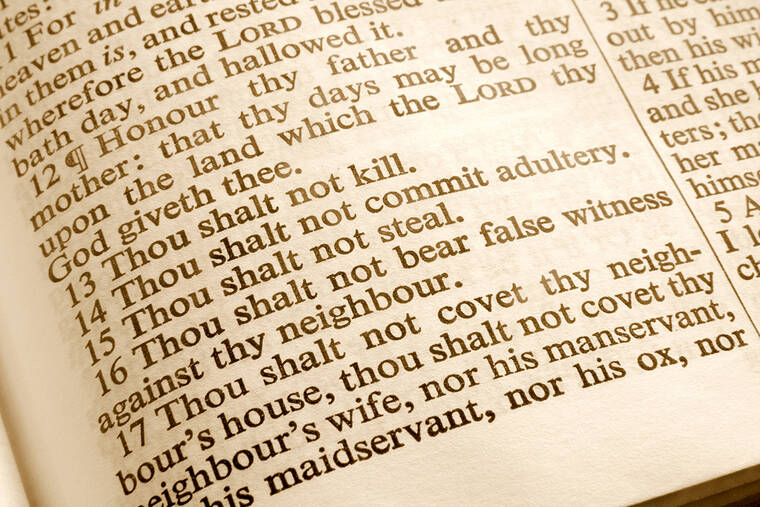Are the Ten Commandments the basis of our moral system?
The governor of Louisiana just signed a law requiring the Ten Commandments to be displayed in public schools.
There are two problems with this. The first and most obvious is that the Constitution prohibits the government from making laws that mandate an establishment of religion. While the Ten Commandments may be central to the Judeo-Christian tradition, the government has no right to pass laws that discriminate against Buddhists, Muslims, Hindus, Taoists, Sikhs or atheists.
ADVERTISING
But there is a second problem: Whose Ten Commandments are going to be displayed? The original text does not number the commandments and contains more than 10 imperative statements. Even within the Judeo-Christian tradition, there are disagreements on how to parse them and what they mean.
The standard Jewish version holds that the first commandment is, “I am the LORD thy God,” while the second commandment is, “Thou shall have no other gods before Me.” For Christians, “I am the Lord thy God” is not a commandment but a preamble.
Catholics and some Protestants differ on where to put the prohibition of graven images and how to interpret it.
According to the Exodus version of the commandments, observance of the Sabbath day (or in some versions the Lord’s Day) is justified because God rested on the seventh day from all the labors associated with creation. But according to the Deuteronomy version, the Sabbath day is supposed to commemorate the Exodus from Egypt. In any case, Jews celebrate the Sabbath on Saturday and Christians on Sunday.
There is still confusion on whether the text means “Thou shall not kill” or “Thou shall not commit murder.” Though most editions of the Bible have “murder,” the King James edition has “kill.”
Adultery in the ancient world involved a man sleeping with a married woman. Nothing in the original text of the Ten Commandments prohibits a married man from sleeping with an unmarried woman, concubine or enslaved person.
While there is a commandment prohibiting false testimony in court, contrary to popular belief, it does not prohibit lying, at least not explicitly. Nor does it prohibit promise breaking.
According to some versions, there are two commandments dealing with coveting: one involving your neighbor’s house and another involving your neighbor’s wife. Other traditions combine them into one commandment.
Are the Ten Commandments the basis of our moral system? If they are, then it is odd that they say nothing about slavery, rape, torture or other heinous crimes. Jesus reduced the commandments to two primary ones: love of God and love of one’s neighbor. But neither of these is mentioned in the original 10.
So which version does the governor of Louisiana want to put up in public schools and how will students be instructed about their meaning?
Your guess is as good as mine. It was disputes like these that led the Framers of the Constitution to decide that when it comes to religious matters, it is best for the government to step aside and let people make up their own minds.
In an age when many people complain about the intrusion of government into people’s private lives, wouldn’t it be better to put up the Bill of Rights, whose wording is beyond dispute, rather than the Ten Commandments?





